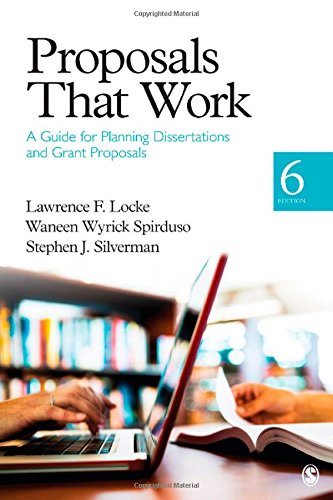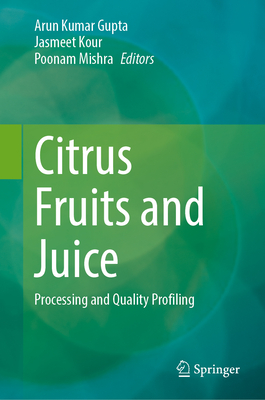图书简介
Learn how to use a four-stage action
research process, reflective practice,
qualitative and quantitative methods, and
culturally responsive teaching to improve
the success of all students.
Preface to the Third Edition \\ Publisher’s Acknowledgments \\ About the Authors \\ 1. Introduction to Action Research \\ Why Conduct Action Research? \\ The Complexity of Routine Instructional Decisions \\ Key Terms and Concepts \\ Universal Student Success \\ 2. Finding a Focus \\ Zeroing in on Your Priorities \\ Using Reflective Writing to Find a Focus \\ Performance, Process, and Program Targets and Action Research by School Leaders \\ Using a Journal to Identify Action Research Foci \\ Reflective Interviews \\ Reflective Interviewing and the Problem of Isolation \\ Analytic Discourse \\ Team Reflection \\ 3. Refining the Focus \\ Visualizing Success \\ Conducting an Instructional Postmortem \\ Taking Stock of One’s Recent Leadership Experience \\ Comparing Your Experience With the Experience of Others \\ Developing Criteria to Measure Changes With Priority Achievement Targets \\ Creating Performance Rating Scales \\ Rating Scales and Program Action Research \\ The Special Problem of Long-Range Goals \\ Assessing Rate of Growth \\ Determining Adequate Yearly Progress in Real Time \\ Producing Your Own Rate-of-Growth Charts \\ Ascertaining Rate of Growth in Leadership Projects \\ 4. Articulating a Theory of Action \\ If Not Us, Who? \\ An Adequate Knowledge Base Already Exists \\ Going Beyond Proven Practices: Building a Theory of Action \\ Two Kinds of Variables \\ Creating Mileposts on the Route to Mastery \\ Inferring Independent Variables \\ Using the Priority Pie to Identify, Clarify, and Weigh Independent Variables \\ Using the Priority Pie With Descriptive Research \\ 5. Drawing a Theory of Action \\ Why a Map? \\ European Explorers as Action Researchers \\ Building a Graphic Reconstruction \\ Graphic Reconstructions for Quasi-Experimental Research \\ Graphic Reconstructions With Descriptive Research \\ Proofing a Theory of Action for Leadership Projects \\ 6. Determining the Research Questions \\ Three Generic Action Research Questions \\ Developing Your Own Research Questions \\ Two-Step Walk-Through \\ Drafting the Questions \\ Surfacing Research Questions for Leadership Projects \\ 7. Building a Data Collection Plan \\ Data Collection and the Competing Demands for Your Time \\ What Qualifies as Teaching? \\ What Things Qualify as Data? \\ Data in Descriptive Research \\ Data in Quasi-Experimental Research \\ Data Collection and Concerns About Precision \\ Fishing in a Sea of Data \\ Securing Research Assistants \\ Building a Triangulated Data Collection Plan \\ Data Collection Planning for Leadership Projects \\ Integrating Efficiencies Into Your Data Collection Work \\ Using Technology to Compile and Assemble Action Research Data \\ Keeping a Researcher’s Journal \\ 8. Analyzing the Data \\ Trend Analysis \\ Organizing Data to Help Answer the Three Generic Questions \\ ACR Question 1: What Did We Do? \\ ACR Question 2: What Changes Occurred Regarding the Achievement Targets? \\ ACR Question 3: What Was the Relationship Between Actions Taken and Any Changes in Performance on the Targets? \\ Drawing Tentative Assertions \\ Using Member Checking to Add Credibility to the Tentative Assertions \\ Additional Tools for Qualitative Data Analysis \\ Qualitative Data Analysis Using Bins and a Matrix \\ Low-Tech Strategies for Bins and Matrixes \\ Using a Computer for Bins and Matrixes \\ 9. Turning Findings Into Action Plans \\ Modifying Your Theory of Action \\ Data-Based Decision Making \\ Turning Your Findings Into Ed Specs \\ Solicit and Brainstorm Action Alternatives \\ Using Ed Specs to Evaluate Action Alternatives \\ Using Ed Specs to Evaluate Action Alternatives for Schoolwide Projects \\ Completing the Cycle: Revised Theory of Action 2 \\ 10. Reporting and Sharing Action Research \\ Common Issues \\ Formats for Reporting \\ Creating a Bank of Abstracts \\ Creating a District Archive \\ 11. Conclusion: The School as a Learning Organization \\ The Two Keys: Coherence and Congruence \\ Putting the Pieces Together \\ Resources \\ Resource A: How to Use the Feedback Forms and Summary Reports \\ Resource B: Five Characteristics of a Quality Action Research Project \\ Resource C: Applications for Leadership Projects \\ Resource D: Sample Abbreviated Action Research Reports \\ Glossary \\ References \\ Index
Trade Policy 买家须知
- 关于产品:
- ● 正版保障:本网站隶属于中国国际图书贸易集团公司,确保所有图书都是100%正版。
- ● 环保纸张:进口图书大多使用的都是环保轻型张,颜色偏黄,重量比较轻。
- ● 毛边版:即书翻页的地方,故意做成了参差不齐的样子,一般为精装版,更具收藏价值。
关于退换货:- 由于预订产品的特殊性,采购订单正式发订后,买方不得无故取消全部或部分产品的订购。
- 由于进口图书的特殊性,发生以下情况的,请直接拒收货物,由快递返回:
- ● 外包装破损/发错货/少发货/图书外观破损/图书配件不全(例如:光盘等)
并请在工作日通过电话400-008-1110联系我们。
- 签收后,如发生以下情况,请在签收后的5个工作日内联系客服办理退换货:
- ● 缺页/错页/错印/脱线
关于发货时间:- 一般情况下:
- ●【现货】 下单后48小时内由北京(库房)发出快递。
- ●【预订】【预售】下单后国外发货,到货时间预计5-8周左右,店铺默认中通快递,如需顺丰快递邮费到付。
- ● 需要开具发票的客户,发货时间可能在上述基础上再延后1-2个工作日(紧急发票需求,请联系010-68433105/3213);
- ● 如遇其他特殊原因,对发货时间有影响的,我们会第一时间在网站公告,敬请留意。
关于到货时间:- 由于进口图书入境入库后,都是委托第三方快递发货,所以我们只能保证在规定时间内发出,但无法为您保证确切的到货时间。
- ● 主要城市一般2-4天
- ● 偏远地区一般4-7天
关于接听咨询电话的时间:- 010-68433105/3213正常接听咨询电话的时间为:周一至周五上午8:30~下午5:00,周六、日及法定节假日休息,将无法接听来电,敬请谅解。
- 其它时间您也可以通过邮件联系我们:customer@readgo.cn,工作日会优先处理。
关于快递:- ● 已付款订单:主要由中通、宅急送负责派送,订单进度查询请拨打010-68433105/3213。
本书暂无推荐
本书暂无推荐















